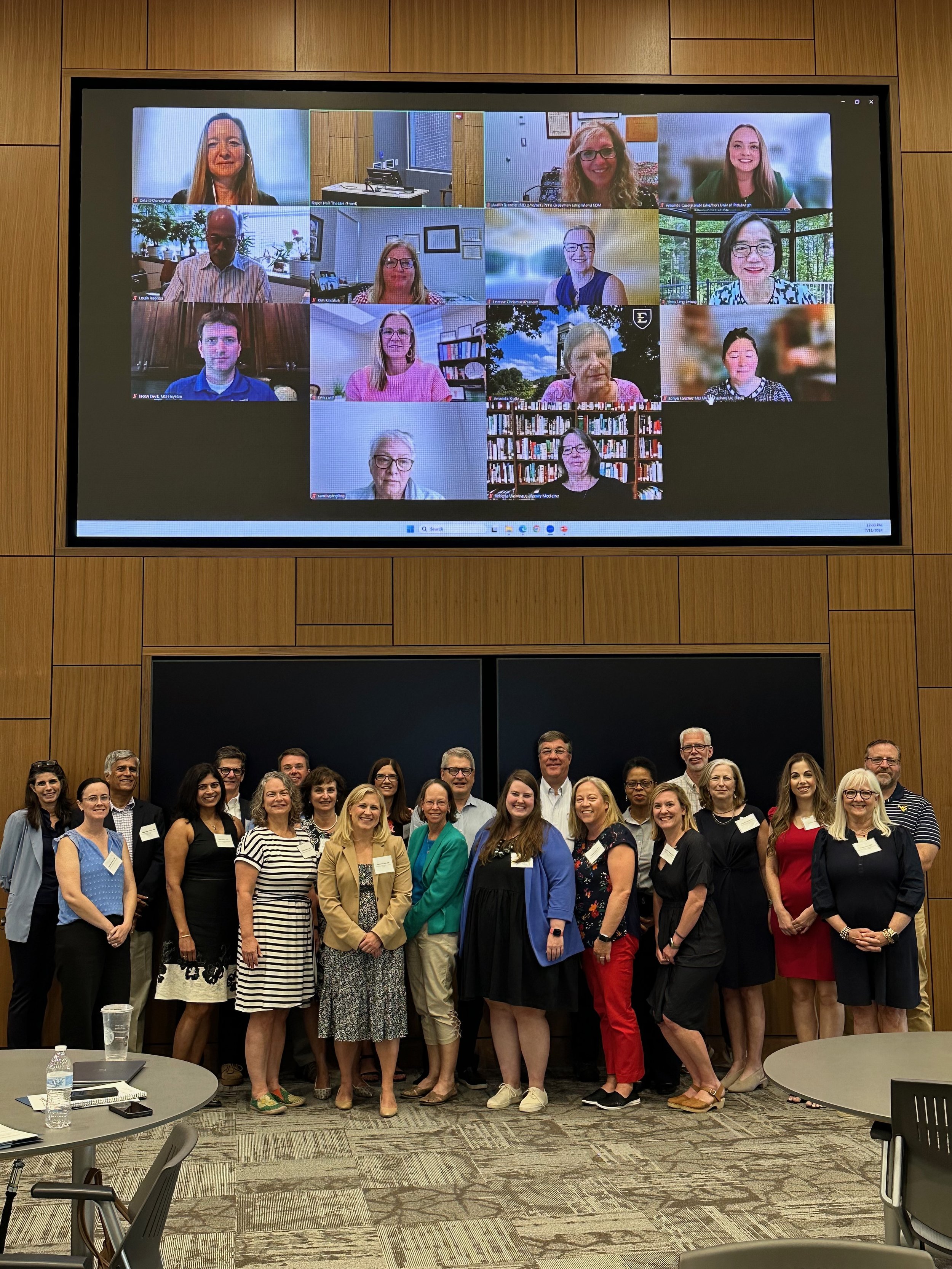our vision
Making medical education more efficient and less expensive.
Campp’s purpose
The Consortium of Accelerated Medical Pathway Programs (CAMPP) is an organization of medical schools in the United States and Canada that have developed 3-year or other accelerated curricula that lead to the MD degree. Representatives from member schools work together to promote, enhance, and evaluate the processes and outcomes related to accelerated medical training. Through collaboration among our diverse member schools, CAMPP seeks to improve physician education across the continuum of learning through scholarship, mentoring of new programs, and professional development.
The CAMPP consortium was created in 2015 with eight medical schools, made possible by a grant from the Josiah Macy Jr. Foundation to NYU Langone School of Medicine. The consortium aims to study several aspects of accelerated MD degree programs, including financial, regulatory, and competency matters. The group also offers guidance to other medical schools seeking to develop such programs.
Goals of the Three-Year MD Consortium
Consortium member schools’ accelerated programs vary significantly, but all focus on reducing the nationwide physician shortage and alleviating student debt.
The consortium’s goals include the following:
To study and develop best practices in the implementation of accelerated MD degree programs
To understand the programs’ impact by tracking student outcomes
To describe effective mentoring for students
To promote the concept of medical education across the undergraduate–graduate continuum
To collaborate with licensing and regulatory agencies on residency placement
To stimulate a national discussion on accelerated pathways in medical education
To provide information that medical schools may use in building their own accelerated programs
Many consortium member schools offer students conditional acceptance into residency programs at their own institutions, thereby promoting continuous learning and competency.
Participating schools have fundamental aspects in common that serve as critical points of collaboration. These include the following:
Federal and national regulatory requirements, including guidelines related to state licensing, the National Resident Matching Program. and the Liaison Committee on Medical Education.
A need for improved assessment and competency measures across the undergraduate medical education–graduate medical education continuum for both three- and four-year students
A need for more evidence-based information upon which to make school-level programmatic and assessment decisions
CAMPP Board of Directors
Chair/ Membership
Judith Brenner, MD
NYU Grossman Long Island School of Medicine
PAST CHAIR
Joan Cangiarella, MD NYU Grossman School of Medicine
Research/ Scholarship Chair
Sally Santen, MD/PhD
University of Cincinnati College of Medicine
Members
Alicia Gonzalez-Flores MD University of California Davis School of Medicine
Allison Macerollo, MD
Ohio State College of Medicine
Lisa Strano-Paul, MD Renaissance School of Medicine at Stony Brook University
Annual Meeting/ Program Chair
Kristen Rundell, MD
University of Arizona
Website/ Communications Chair
Betsy Jones, EdD
Texas Tech University HSC
New Program Resource Contacts
If you represent a medical school interested in learning more about A3YP, please contact:
CAMPP.A3YP@gmail.com
All emails are answered within 24-48 hours.
Member Schools
Founding Member Schools
At the start of the grant from the Macy Foundation in 2015, the following eight medical schools with accelerated medical pathways were invited to join the Consortium:
1. New York University School of Medicine
3. Texas Tech University Health Sciences Center School of Medicine
4. Mercer University School of Medicine
5. University of California Davis
Attendees at the 2024 Annual Conference hosted by UNC
CAMPP Program Member Logos July 2024
CAMPP at STFM Medical Student Education 2023
The CAMPP Consortium was represented at the 2023 STFM Medical Student Education Conference in New Orleans:
Leong SL, Rundell K, Coe C, Jones BG, Cangiarella J. Graduates of 3-year Accelerated MD Program: Journey of Their Training and Practice Patterns. Poster Presentation, 2023 STFM Conference on Medical Student Education in New Orleans, LA, January 26-29, 2023.
our history
Over the course of the four years of funding from the Macy Foundation, the following schools joined the Consortium:
9. Duke University School of Medicine (2016)
10. Cooper Medical School of Rowan University (2016)
11. The Ohio State University College of Medicine (2016)
12. University of Kentucky School of Medicine (2016)
13. Medical University of South Carolina (2017)
14. University of North Carolina School of Medicine (2017)
15. Stony Brook University School of Medicine (2018)
16. Hackensack Meridian School of Medicine (2018)
17. Meharry Medical College (2019)
18. NYU-Long Island School of Medicine (2019)
19. Virginia Commonwealth University (2019)
20. Rutgers New Jersey Medical School (2019)
21. University of Tennessee (2020)
22. Wayne State University (2020)
23. Rush Medical College (2020)
24. University of Arkansas Northwest (2020)
25. Medical College of Georgia (2020)
26. Wright State University Boonshoft SOM (2020)
27. University of Massachusetts (2021)
28. University of Wisconsin Madison (2021)
29. University of Miami Miller SOM (2021)
30. West Virginia University School of Medicine
31. University of Oklahoma-Tulsa University School of Medicine (2022)
32. University of Arizona College of Medicine (2023)
33. Geisinger Commonwealth College of Medicine (2023)
34. University of Massachusetts School of Medicine (2024)
Other Participating Schools
Elson S. Floyd College of Medicine at Washington State University
Upstate Medical University School of Medicine
CAMPP Digital Poster Session





